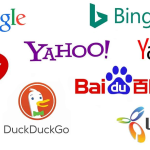Plus: Angry parents add to colleges’ protest headaches; Universal Music returns to TikTok.
A fully functional replica of the house from “Up,” including the ability to float. A stay “hosted” by Christina Aguilera. Barbie’s Malibu Dream House. These are just a few of Airbnb’s Icons, a series of outrageous stays purposefully designed to keep the rental company in the media and in the public conversation in a positive way.
And it’s working.
The New York Times reports that the Barbie Dream House, timed to coincide with the release of the “Barbie” movie, naturally, got more press than when Airbnb went public. A recreation of Shrek’s swamp abode in Scotland earned more than 200 million views.
Airbnb is planning to expand the Icons program, especially internationally, with options to stay on a tour bus with a Colombian reggaeton star or bunk with a Bollywood star in India.
That’s all exactly according to plan.
“Most people only ever open our app once or twice a year, and we’ve got to battle to make sure they think of us every single year,” Airbnb CEO Brian Chesky told the Times. “So this keeps us top of mind and culturally relevant.”
It also helps combat negative press, changing the narrative away from discussions over how Airbnb impacts communities back to how fun and glamorous Airbnb stays are.
Why it matters:
This is a fantastic example of how to tie stunt PR squarely to business objectives.
The goal of Icons isn’t to make money on the rentals; many of the stays are free, minus travel costs. Rather, it’s there to get readers to pick up their phones and browse listings for their next vacation — and forget about things like controversies over hidden cameras in units. And that’s where the real impact can happen.
Even the New York Times reporter who penned the article sheepishly notes that the strategy is effective, since it did get the Gray Lady to cover Airbnb in a positive way: “Yes, we fell for it,” he admitted in a parenthetical.
Not every organization has the capability to swing this level of stunt. Not everyone can command a stable of celebrities and film IP. But look for ways that you can embrace the outrageous and grab headlines. Think of the ways Kraft Heinz, Oreo, Duolingo — heck, the Oklahoma Wildlife Department — and a host of other brands and organizations have embraced smaller-scale stunts for maximum impact and brand recognition. But above all, keep authenticity at the heart of strategies like these, and ensure you understand how those tactics tie into your broader strategy. That’s when PR is truly magic.
Editor’s top reads:
- As protests continue to engulf college campuses, just in time for commencement, there’s yet another aggrieved constituency for administrators to consider: parents. The Wall Street Journal reports that the people who often pay for their children to receive pricy educations at Ivy League institutions are none too happy about the disruptions. And it’s more than just complaints: Some are asking for tuition refunds after classes were cancelled, and others threatening to withhold future donations. On the other hand, some complain that the colleges haven’t done enough to protect protestors, further exemplifying the deep schism that exists on this issue. It’s yet another stakeholder group that must be considered in a messy, ongoing situation with no clear resolution. The key, as ever, is frequent, transparent and honest communication.
- Three months after music from some of the biggest artists in the world disappeared from TikTok, Universal Music Group will return to the app, the BBC reported. That means tunes from artists like Billie Eilish and Arianna Grande will again be available for videos. And in return, they’ll be getting more royalties and promises to remove AI-generated content that mimics their performances. It’ll take about two weeks to return all the music to the platform, a process that will also include reinstating the tunes on existing content.
- Coca-Cola is catching both creative praise and reputational flack for a new ad that sees its iconic red can mangled and crushed while a song crooning about “we’ll be together again” plays. At the end, it’s revealed to be a push for users to recycle. It’s a cool ad, and recycling is good, but the ad also draws attention to the fact that Coca-Cola continues to fall short on its own sustainability goals, actually increasing its plastic use after promising to drastically decrease it. While this is unlikely to be a major PR snafu, it’s wise to keep an eye on the bigger picture when creating advertisements. Even a well-produced spot with a positive message can be a detriment when it isn’t placed in the proper context.
Allison Carter is editor-in-chief of PR Daily. Follow her on Twitter or LinkedIn.
The post The Scoop: How Airbnb dominates headlines with splashy rental stunts appeared first on PR Daily.













